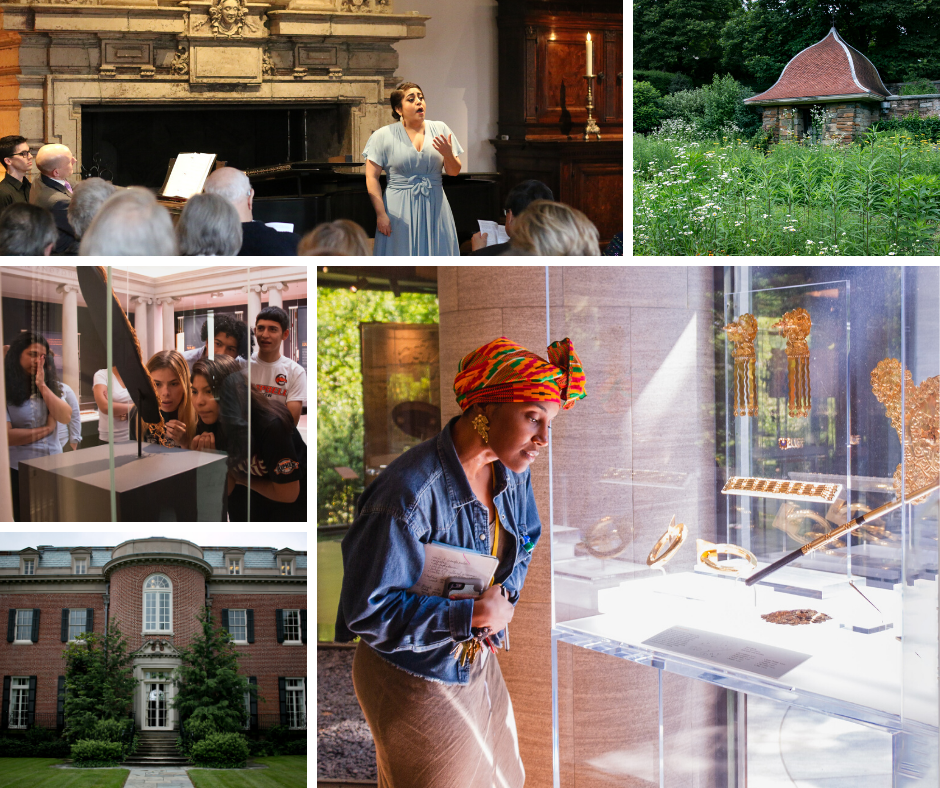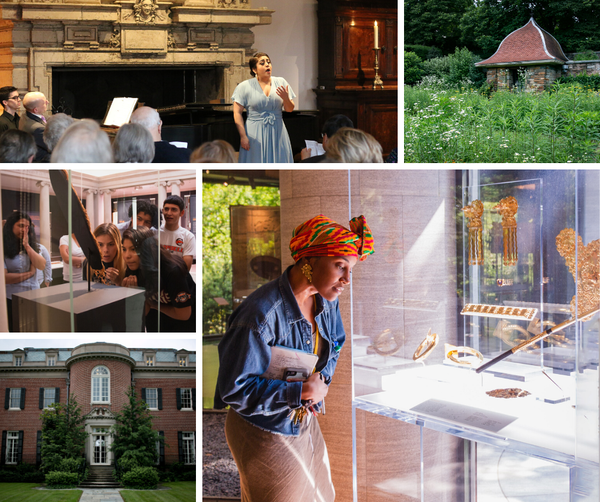At a time when the global pandemic and longstanding social problems are driving cultural organizations to reimagine their work, audiences, and impact, this conference on cultural philanthropy is both timely and urgent. Philanthropy plays an unusually important role in the provision of public goods in the United States, where it funds museums, operas, and symphonies alongside educational initiatives and grassroots organizations. Yet cultural philanthropy has received comparatively little attention. The conference brings together thought leaders who share their insights about the role, impact, and critique of philanthropy in the cultural sphere.
Keynote lecture by Stanley Katz:
Thursday, June 2 from 6:00 PM until 7:00 PM (virtual)
All-day conference:
Friday, June 3 from 9:00 AM until 5:00 PM (virtual)
Speakers Include:
Keynote: “Cultural Philanthropy: Can we measure its impact? Should we have to?”
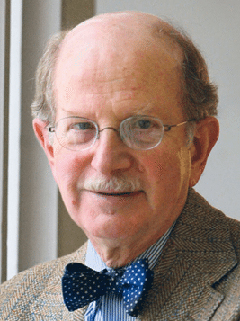 Stanley Katz is President Emeritus of the American Council of Learned Societies, the national humanities organization in the United States. Mr. Katz graduated magna cum laude from Harvard University in 1955 with a major in English History and Literature. He was trained in British and American history at Harvard (PhD, 1961), where he also attended Law School in 1969–70. His current research focuses upon recent developments in American philanthropy, the relationship of civil society and constitutionalism to democracy, and the relationship of the United States to the international human rights regime. He writes about higher education policy, and has published a blog for the Chronicle of Higher Education. Formerly Class of 1921 Bicentennial Professor of the History of American Law and Liberty at Princeton University, Katz is a specialist on American legal and constitutional history, and on philanthropy and non-profit institutions.
Stanley Katz is President Emeritus of the American Council of Learned Societies, the national humanities organization in the United States. Mr. Katz graduated magna cum laude from Harvard University in 1955 with a major in English History and Literature. He was trained in British and American history at Harvard (PhD, 1961), where he also attended Law School in 1969–70. His current research focuses upon recent developments in American philanthropy, the relationship of civil society and constitutionalism to democracy, and the relationship of the United States to the international human rights regime. He writes about higher education policy, and has published a blog for the Chronicle of Higher Education. Formerly Class of 1921 Bicentennial Professor of the History of American Law and Liberty at Princeton University, Katz is a specialist on American legal and constitutional history, and on philanthropy and non-profit institutions.
“Diversity Capital: Corporate Support of Black Organizations”
 Patricia A. Banks (Harvard University PhD & A.M./Spelman College B.A.) is Co-Editor-in-Chief of Poetics and Chair and Professor in the Department of Sociology and Anthropology at Mount Holyoke College. She is the author of four books including two books on philanthropy and race: Black Culture Inc: How Ethnic Community Support Pays for Corporate America (Stanford University Press 2022) and Diversity and Philanthropy at African American Museums (Routledge 2019). Banks serves on the editorial board of Cultural Sociology and the advisory council for the Donors of Color: Giving Trends project (Lilly Family School of Philanthropy, Indiana University).
Patricia A. Banks (Harvard University PhD & A.M./Spelman College B.A.) is Co-Editor-in-Chief of Poetics and Chair and Professor in the Department of Sociology and Anthropology at Mount Holyoke College. She is the author of four books including two books on philanthropy and race: Black Culture Inc: How Ethnic Community Support Pays for Corporate America (Stanford University Press 2022) and Diversity and Philanthropy at African American Museums (Routledge 2019). Banks serves on the editorial board of Cultural Sociology and the advisory council for the Donors of Color: Giving Trends project (Lilly Family School of Philanthropy, Indiana University).
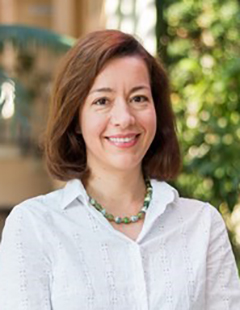 Yota Batsaki is Executive Director of Dumbarton Oaks since 2011. Her interest in philanthropy goes back to her previous teaching on theories of the gift as a lecturer in the English Faculty at Cambridge University. For the past five years she has directed a Harvard wintersession course on cultural philanthropy and soft power in Washington, DC that has featured many of the speakers of this conference. The course has produced a student-led digital project on how collecting and philanthropy have shaped the cultural landscape of the nation’s capital: Mapping Cultural Philanthropy.
Yota Batsaki is Executive Director of Dumbarton Oaks since 2011. Her interest in philanthropy goes back to her previous teaching on theories of the gift as a lecturer in the English Faculty at Cambridge University. For the past five years she has directed a Harvard wintersession course on cultural philanthropy and soft power in Washington, DC that has featured many of the speakers of this conference. The course has produced a student-led digital project on how collecting and philanthropy have shaped the cultural landscape of the nation’s capital: Mapping Cultural Philanthropy.
“Women's Culture: Philanthropy and Art”
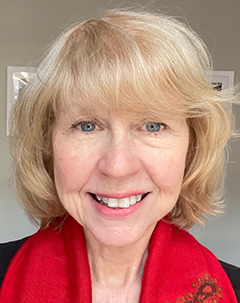 Kathleen D. McCarthy is Professor of History at The Graduate Center, CUNY, and directs the Center on Philanthropy and Civil Society. She received her PhD from the University of Chicago. She is the author of American Creed: Philanthropy and the Rise of Civil Society, 1700–1865, Women's Culture: American Philanthropy and Art, 1830–1930, and other books and articles on national and international philanthropy, and has lectured on these topics worldwide. Dr. McCarthy has been a Visiting Research Fellow with the Rockefeller Foundation, a consultant to The Ford Foundation, and President of ARNOVA. She is currently researching Women, Power and Money from the First Gilded Age to the Second.
Kathleen D. McCarthy is Professor of History at The Graduate Center, CUNY, and directs the Center on Philanthropy and Civil Society. She received her PhD from the University of Chicago. She is the author of American Creed: Philanthropy and the Rise of Civil Society, 1700–1865, Women's Culture: American Philanthropy and Art, 1830–1930, and other books and articles on national and international philanthropy, and has lectured on these topics worldwide. Dr. McCarthy has been a Visiting Research Fellow with the Rockefeller Foundation, a consultant to The Ford Foundation, and President of ARNOVA. She is currently researching Women, Power and Money from the First Gilded Age to the Second.
“Object Lessons: Curating Cultural Philanthropy at the Smithsonian"
 Dr. Amanda B. Moniz is the David M. Rubenstein Curator of Philanthropy at the Smithsonian Institution’s National Museum of American History. Her book, From Empire to Humanity: The American Revolution and the Origins of Humanitarianism (OUP, 2016) received the inaugural Peter Dobkin Hall History of Philanthropy Prize from ARNOVA. Two areas of particular focus for her collecting are the relationship between war and Latinx philanthropy and the development of fundraising; with colleagues she is working on a project exploring the long history of African American fundraising. She is working on a biography of Isabella Graham, a Scottish widow who transformed philanthropy in early-national New York.
Dr. Amanda B. Moniz is the David M. Rubenstein Curator of Philanthropy at the Smithsonian Institution’s National Museum of American History. Her book, From Empire to Humanity: The American Revolution and the Origins of Humanitarianism (OUP, 2016) received the inaugural Peter Dobkin Hall History of Philanthropy Prize from ARNOVA. Two areas of particular focus for her collecting are the relationship between war and Latinx philanthropy and the development of fundraising; with colleagues she is working on a project exploring the long history of African American fundraising. She is working on a biography of Isabella Graham, a Scottish widow who transformed philanthropy in early-national New York.
“Why is It Important that We Continue? Some Nonprofit Arts Organizations Rethink Their Value in Challenging Times”
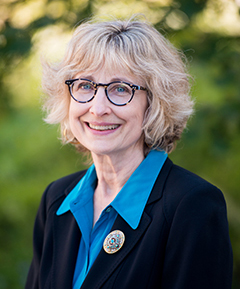 Francie Ostrower, Ph.D., is Professor at the University of Texas at Austin in the LBJ School of Public Affairs and College of Fine Arts, Director of the Portfolio Program in Arts and Cultural Management and Entrepreneurship, and Senior Fellow in the RGK Center for Philanthropy and Community Service. She is Principal Investigator of the multi-year study Building Audiences for Sustainability: Research and Evaluation, commissioned and funded by The Wallace Foundation, and has authored numerous publications on philanthropy, nonprofit governance, and arts participation.
Francie Ostrower, Ph.D., is Professor at the University of Texas at Austin in the LBJ School of Public Affairs and College of Fine Arts, Director of the Portfolio Program in Arts and Cultural Management and Entrepreneurship, and Senior Fellow in the RGK Center for Philanthropy and Community Service. She is Principal Investigator of the multi-year study Building Audiences for Sustainability: Research and Evaluation, commissioned and funded by The Wallace Foundation, and has authored numerous publications on philanthropy, nonprofit governance, and arts participation.
“Patriotic Philanthropy: How Cultural Institutions Can Address Polarization through Civic Education"
 Jeffrey Rosen is the President and CEO of the National Constitution Center, a nonpartisan nonprofit whose mission is to increase awareness and understanding of the U.S. Constitution. Located steps from Independence Hall in Philadelphia, the Center engages millions of citizens as an interactive museum, national town hall, and provider of nonpartisan resources for civic education. Rosen hosts the Center’s weekly We the People podcast, which brings together liberal and conservative voices for constitutional debate and teaches Constitution 101 classes for learners of all ages. These educational resources are hosted on the Center’s acclaimed Interactive Constitution, which has received more than 55 million hits since launching in 2015.
Jeffrey Rosen is the President and CEO of the National Constitution Center, a nonpartisan nonprofit whose mission is to increase awareness and understanding of the U.S. Constitution. Located steps from Independence Hall in Philadelphia, the Center engages millions of citizens as an interactive museum, national town hall, and provider of nonpartisan resources for civic education. Rosen hosts the Center’s weekly We the People podcast, which brings together liberal and conservative voices for constitutional debate and teaches Constitution 101 classes for learners of all ages. These educational resources are hosted on the Center’s acclaimed Interactive Constitution, which has received more than 55 million hits since launching in 2015.
“Philanthropy Critique and Cultural Capital”
 Benjamin Soskis is a senior research associate in Urban Institute’s Center on Nonprofits and Philanthropy, and the co-editor of the web publication HistPhil. A frequent contributor to the Chronicle of Philanthropy, his work has also appeared in the Washington Post, The Atlantic, and the Los Angeles Times, among other publications. He is co-editor of Giving in Time: New Perspectives on the Temporal Dimensions of Philanthropy (Rowman & Littlefield, forthcoming), and co-author of The Battle Hymn of the Republic: A Biography of the Song that Marches On (Oxford University Press, 2012). He received a PhD in American History from Columbia University.
Benjamin Soskis is a senior research associate in Urban Institute’s Center on Nonprofits and Philanthropy, and the co-editor of the web publication HistPhil. A frequent contributor to the Chronicle of Philanthropy, his work has also appeared in the Washington Post, The Atlantic, and the Los Angeles Times, among other publications. He is co-editor of Giving in Time: New Perspectives on the Temporal Dimensions of Philanthropy (Rowman & Littlefield, forthcoming), and co-author of The Battle Hymn of the Republic: A Biography of the Song that Marches On (Oxford University Press, 2012). He received a PhD in American History from Columbia University.
“A Sad Day in the Life of a Museum: The Clash of Values Confronting Museum Governance”
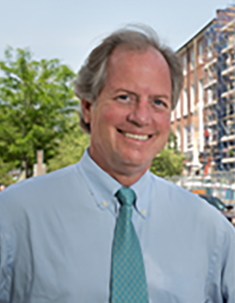 John Wetenhall is founding director of the George Washington University Museum and serves on the faculty of GW’s Graduate Program in Museum Studies. A museum director for over 25 years, he has led transformations at The John and Mable Ringling Museum of Art in Sarasota, Florida, the Cheekwood Museum of Art in Nashville and the Birmingham Museum of Art. Service on museum association boards includes AAM, ICOM-US and AAMG. He is an art historian, educated at Dartmouth (BA), Williams (MA) and Stanford (MA, PhD), with an MBA from Vanderbilt. Recent writings focus on the values, ethics, and “business” of museums.
John Wetenhall is founding director of the George Washington University Museum and serves on the faculty of GW’s Graduate Program in Museum Studies. A museum director for over 25 years, he has led transformations at The John and Mable Ringling Museum of Art in Sarasota, Florida, the Cheekwood Museum of Art in Nashville and the Birmingham Museum of Art. Service on museum association boards includes AAM, ICOM-US and AAMG. He is an art historian, educated at Dartmouth (BA), Williams (MA) and Stanford (MA, PhD), with an MBA from Vanderbilt. Recent writings focus on the values, ethics, and “business” of museums.
